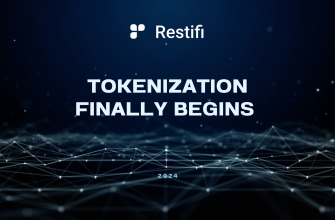Tokenized equity is revolutionizing the investment landscape, providing a new way for investors to engage with the market. Understanding the basics of tokenized equity is essential for anyone looking to explore this groundbreaking concept.
- Understanding Tokenized Equity
- The Role of Blockchain in Tokenized Equity
- The Rise of Tokenized Equity in the Investment Landscape
- The Shift from Traditional Investment Methods
- The Benefits of Tokenized Equity for Investors
- The Launchpad for Tokenized Equity
- The Concept of a Launchpad in the Crypto World
- The Functionality and Features of a Tokenized Equity Launchpad
- The Impact of Tokenized Equity on the Global Investment Scene
- The Potential of Tokenized Equity in Emerging Markets
- The Future of Investment with Tokenized Equity
- Navigating the Challenges of Tokenized Equity
- Regulatory Hurdles and Compliance Issues
- Addressing Security Concerns in Tokenized Equity
- In Conclusion
Understanding Tokenized Equity
Tokenized equity refers to the process of representing traditional financial securities, such as stocks and shares, with digital tokens on a blockchain. This innovative approach allows for the fractional ownership of assets and enables investors to trade these tokens instantly and securely.
Tokenized equity brings numerous advantages, including increased liquidity, reduced transaction costs, and accessibility to a broader range of investors, including those who may have been excluded from traditional investment opportunities.
When it comes to tokenized equity, the possibilities are vast. Imagine a world where anyone, regardless of their financial status, can invest in high-value assets like real estate or startups. Tokenization opens up new opportunities for individuals to diversify their investment portfolios and participate in markets that were once reserved for the wealthy few.
One of the key benefits of tokenized equity is increased liquidity. Unlike traditional securities, which can be illiquid and require lengthy settlement periods, tokenized assets can be traded 24/7 on blockchain-based platforms. This means that investors have the flexibility to buy or sell their tokens at any time, providing them with greater control over their investments.
Reduced transaction costs are another advantage of tokenized equity. By eliminating intermediaries, such as brokers or clearinghouses, blockchain technology streamlines the process of buying and selling tokens. This not only reduces fees but also minimizes the potential for errors or delays in transactions.
The Role of Blockchain in Tokenized Equity
Blockchain technology is at the heart of tokenized equity. It provides the necessary infrastructure for secure and transparent transactions, removing the need for intermediaries and creating trust among participants. Smart contracts, coded agreements that automatically execute transactions when predefined conditions are met, ensure transparency and efficiency in tokenized equity markets.
Blockchain’s decentralized nature ensures that tokenized equity transactions are resistant to censorship and manipulation. The distributed ledger records every transaction, creating an immutable and auditable history of ownership. This transparency not only builds trust among investors but also helps prevent fraudulent activities, as any attempt to tamper with the records would be immediately detected by the network.
Moreover, blockchain technology enables fractional ownership, allowing investors to own a fraction of an asset rather than having to purchase it in its entirety. This opens up investment opportunities for individuals who may not have had the financial means to invest in high-value assets previously. Fractional ownership also provides greater flexibility, as investors can diversify their portfolios by holding multiple tokens representing different assets.
As tokenized equity gains traction, regulatory frameworks are being developed to ensure investor protection and market integrity. Governments and financial authorities are recognizing the potential of blockchain technology and are working towards creating a conducive environment for tokenized equity markets to thrive.
In conclusion, tokenized equity is revolutionizing the way we think about investing and ownership. By leveraging blockchain technology, it offers increased liquidity, reduced transaction costs, and accessibility to a broader range of investors. As the world becomes more interconnected and technology-driven, tokenized equity is poised to reshape traditional financial markets and democratize investment opportunities.
The Rise of Tokenized Equity in the Investment Landscape
The investment landscape is undergoing a significant transformation with the rise of tokenized equity. This innovative approach is challenging traditional investment methods by democratizing access to investment opportunities. It breaks down the barriers that often hinder smaller investors and unlocks investments that were previously limited to a select few.
Tokenized equity allows companies to create Initial Token Offerings (ITOs), which enable investors to participate in their growth. This opens doors for startups and established companies alike to raise capital and gain broader exposure in the market. By leveraging blockchain technology, tokenized equity offers a new way for companies to engage with investors and revolutionize the investment landscape.
The Shift from Traditional Investment Methods
Tokenized equity represents a fundamental shift from traditional investment methods. In the past, investing in private companies or early-stage startups was reserved for venture capitalists and high-net-worth individuals. This exclusivity often left smaller investors on the sidelines, unable to access potentially lucrative investment opportunities.
However, with the advent of tokenized equity, the investment landscape is becoming more inclusive. Smaller investors now have the chance to participate in the growth of promising companies, leveling the playing field and democratizing investment opportunities. This shift is reshaping the way investments are made and empowering a wider range of individuals to engage in the market.
The Benefits of Tokenized Equity for Investors
Investors stand to benefit greatly from embracing tokenized equity. One of the key advantages is the fractional ownership model, which enables smaller investments. This makes it easier for investors to diversify their portfolios and mitigate risk. Instead of having to invest a significant amount of capital in a single company, tokenized equity allows investors to spread their investments across multiple opportunities, increasing their chances of success.
Furthermore, tokenized equity provides investors with 24/7 access to global markets. Unlike traditional investment methods that are subject to market opening hours, tokenized equity allows investors to trade and monitor their investments at any time. This enhanced accessibility not only provides greater flexibility but also enables investors to seize opportunities and react to market changes promptly.
Another benefit of tokenized equity is faster settlements. Traditional investment methods often involve lengthy settlement periods, which can delay the realization of returns. However, with tokenized equity, settlements can be executed more efficiently, reducing the time it takes for investors to receive their funds. This increased liquidity enhances the overall investment experience and minimizes market friction.
As tokenized equity continues to gain traction in the investment landscape, investors are presented with a new and exciting way to engage with the market. The democratization of investment opportunities, fractional ownership model, and enhanced liquidity are just a few of the benefits that make tokenized equity an attractive option for investors looking to diversify their portfolios and participate in the growth of innovative companies.
The Launchpad for Tokenized Equity
The Concept of a Launchpad in the Crypto World
In the crypto world, a launchpad serves as a platform for the introduction of new token projects to the market. It provides a space where innovative ideas can take flight and capture the attention of investors and enthusiasts alike. This concept of a launchpad has revolutionized the way startups and companies raise funds, enabling them to tap into a global network of potential backers.
With the rise of blockchain technology, the concept of a launchpad has expanded beyond just token projects. In the realm of tokenized equity, a launchpad acts as a facilitator for companies seeking to tokenize their assets and provide investment opportunities to interested participants. It serves as a bridge between traditional finance and the blockchain world, unlocking new possibilities for both businesses and investors.
The Functionality and Features of a Tokenized Equity Launchpad
A tokenized equity launchpad offers a range of functionalities to streamline the tokenization process. It goes beyond being a mere marketplace and provides a comprehensive suite of tools and services to support companies in their journey towards tokenized equity.
One of the key features of a tokenized equity launchpad is the ability for companies to create and issue their own tokenized equity. This empowers businesses to democratize ownership and provide investment opportunities to a wider pool of investors. By tokenizing their assets, companies can unlock liquidity and enable fractional ownership, making it easier for investors to diversify their portfolios.
But a tokenized equity launchpad is not just about creating and issuing tokens. It also serves as a platform for investors to discover and analyze investment opportunities. Through the launchpad, investors can access detailed information about the company, its financials, and its growth prospects. This transparency and accessibility empower investors to make informed decisions and participate in projects that align with their investment goals.
Moreover, some launchpads provide additional features to enhance the tokenization process. These features can include due diligence services, Regulatory Technology (RegTech) compliance checks, and investor protection mechanisms. By conducting thorough due diligence, launchpads ensure that only legitimate and compliant projects are listed on their platform. This not only protects investors from potential scams or fraudulent activities but also helps maintain the integrity and reputation of the tokenized equity ecosystem.
Furthermore, launchpads that incorporate RegTech compliance checks help companies navigate the complex regulatory landscape. They ensure that companies comply with relevant securities laws and regulations, reducing legal risks and providing a secure environment for both businesses and investors.
Investor protection mechanisms are also crucial in a tokenized equity launchpad. These mechanisms can include features like escrow services, smart contract audits, and dispute resolution processes. By implementing these safeguards, launchpads aim to mitigate risks and provide a level of trust and security to all stakeholders involved.
In summary, a tokenized equity launchpad is not just a marketplace but a comprehensive ecosystem that supports companies in their tokenization journey and empowers investors to participate in innovative projects. It combines technological advancements, regulatory compliance, and investor protection to create a vibrant and secure environment for the tokenized equity market.
The Impact of Tokenized Equity on the Global Investment Scene
The Potential of Tokenized Equity in Emerging Markets
Tokenized equity has the potential to unlock investment opportunities in emerging markets, where traditional investment methods may be limited or inefficient. By leveraging blockchain technology, companies can tokenize their assets and attract both local and global investors, stimulating economic growth and providing capital access to previously underserved regions.
The Future of Investment with Tokenized Equity
With its ability to enhance efficiency and accessibility, tokenized equity has a promising future in the investment landscape. As blockchain technology matures and regulatory frameworks evolve, we can expect to see even more adoption and innovation in this space. The future of investment is bound to be decentralized, democratized, and driven by tokenized equity.
Navigating the Challenges of Tokenized Equity
Regulatory Hurdles and Compliance Issues
One of the significant challenges facing tokenized equity is navigating the regulatory landscape. As this innovative approach disrupts traditional financial markets, regulatory authorities are actively working to create frameworks to govern tokenized securities. However, striking the right balance between investor protection and fostering innovation remains an ongoing challenge.
Addressing Security Concerns in Tokenized Equity
Security concerns pose another challenge for tokenized equity. While blockchain technology provides transparency and immutability, it is crucial to address vulnerabilities associated with smart contracts and crypto wallets. Robust security measures, including rigorous audits and regular updates, must be in place to protect against potential attacks and ensure investor confidence.
In Conclusion
Tokenized equity is reshaping the investment landscape by bringing increased liquidity, accessibility, and efficiency to the market. Blockchain technology serves as the foundation for this transformation, empowering investors and companies to participate in a borderless and decentralized ecosystem.
As tokenized equity continues to gain traction, the role of launchpads becomes increasingly important, providing a gateway for companies and investors to engage with this innovative investment approach. While challenges, such as regulatory hurdles and security concerns, persist, the potential for tokenized equity to revolutionize the investment landscape cannot be overlooked.









